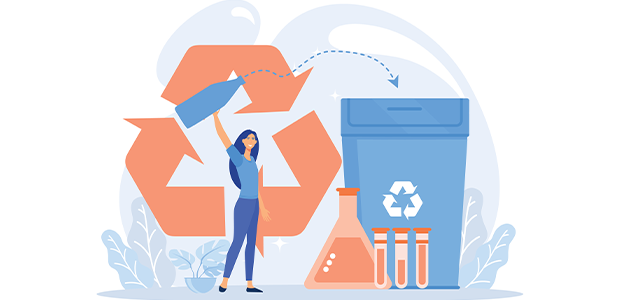
Samsara Eco secures $100M to help end plastic waste
Samsara Eco, an envirotech innovator, has announced it raised AUD$100 million in its latest funding round. The round was led by global investment firm Temasek and Australian deeptech investment fund Main Sequence, with participation from new and existing investors including Wollemi Capital, lululemon, Hitachi Ventures, Titanium Ventures (formerly Telstra Ventures), and DCVC. This funding brings Samsara Eco closer to its goal of eliminating plastic waste, ensuring it never ends up in landfill or incineration.
The capital will enable Samsara Eco to scale its enzymatic recycling capabilities by building new commercial facilities in Southeast Asia over the next few years. These facilities will recycle millions of tonnes of plastic waste, such as discarded textiles and packaging, to produce tens of thousands of tonnes of monomers – the molecular building blocks of plastics – thereby creating new products in a truly circular economy.
Additionally, the company plans to expand its global team of chemists, engineers, and technicians and increase its library of plastic-eating enzymes.
“Plastics have been an environmental disaster with almost every piece of the 9 billion tonnes ever made still on the planet. But almost all plastic is reusable and recyclable with the right technology. We’re on a mission to end plastic waste and with it, repair our climate, said Paul Riley, CEO and Founder of Samsara Eco. “The ability to infinitely recycle plastic in an environmentally friendly way is a game changer for brands and our planet. Our enzymatic recycling technology makes it easy for brands in almost every industry to meet their sustainability and decarbonisation goals by creating a circular loop for plastics. We’ve already made significant traction in the textile space but this is just the beginning.”
Since its launch in 2020, Samsara Eco has achieved groundbreaking advancements in infinite recycling, particularly in the recycling of plastics like nylon 6,6 and polyester. Earlier this year, in collaboration with its first textile partner, Samsara Eco introduced the world’s first enzymatically recycled nylon 6,6 product and supported lululemon in launching its first product made from enzymatically recycled polyester.
Samsara Eco’s patented EosEco™ recycling technology employs a unique combination of biophysics, chemistry, biology, and computer science, including AI, to develop a suite of plastic-eating enzymes. These enzymes decompose plastic waste, such as textiles made from nylon and polyester, into their raw material components. These materials can then be seamlessly reintegrated into existing manufacturing processes to produce new products.
Samsara Eco aims to scale its technology to enable the infinite recycling of all types of plastics. This scalable approach is designed to integrate within existing supply chains across various sectors, including automotive, electronics, and consumer packaged goods.
“We’re creating a first-of-its-kind infinite recycling process that is genuinely better for our planet. EosEco reduces the end-to-end recycling time, while also operating at a lower temperature and pressure to ultimately reduce waste and carbon emissions. By solving the circularity piece of the puzzle for all plastics, we’re making it possible to imagine a more sustainable future,” added Riley.
Phil Morle, Partner at Main Sequence commented, “Samsara Eco demonstrates how science can deliver a real solution to huge problems – in this case, the accumulation of plastic waste and the continued need to produce new plastics from fossil fuels. Deep tech venture capital fuels this science with a rapid path to market, helping accelerate impactful change in the world. We are steadfast believers in this mission and Samsara Eco. The team are already making significant strides to eliminate textile waste and will be vital to creating a more sustainable future. We are proud to back the company again as it continues to scale."

